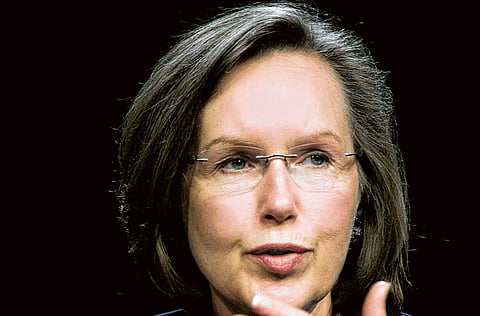Sunoco chief cuts costs by dumping refineries
CEO shifting company's focus to more stable sources of revenue

New York: Sunoco Chief Executive Officer Lynn Elsenhans has figured out the best strategy for staunching losses from the refining business: get rid of refineries.
Elsenhans, 54, boosted Sunoco to the top of the list of major US oil and gas companies in returns this year as the stock gained 53 per cent. She took charge of the second-largest US independent refiner in 2008, just as fuel demand slumped the most in 27 years, and immediately started trimming costs.
Sunoco, like almost all other US independent refiners, lost money in 2009. Elsenhans reacted faster to the downturn than her rivals, shifting the company's focus from the less-profitable refineries to more stable sources of revenue such as pipelines and storage terminals. Other peers, including Valero Energy, have followed in shutting down or selling plants.
Now analysts say she may have gone too far, after agreeing to sell or close three of the company's five refineries. With the economy beginning to recover, Elsenhans, the only female CEO of a Fortune 500 energy company, faces the challenge of expanding profit at a business she has spent the last two years shrinking.
"When I look at the remaining business, there's not much left," said Philip Weiss, an analyst at Argus Research in New York who has a "sell" on the shares and owns none.
A 28-year veteran of Royal Dutch Shell, Elsenhans froze pension benefits, fired employees and got rid of a corporate jet. She cut operating costs by 37 per cent. After planned sales, Sunoco will have about half the 910,000 barrels a day of refining capacity it used to have in 2007, when the unit generated 82 per cent of its $891 million (Dh3.27 trillion) in net income, according to data compiled by Bloomberg.
Long-term risks
The company's rising stock is a short-term benefit of a business strategy that carries long-term risks, said Weiss. Sunoco's climb is better than rival refiners Valero and Tesoro. It's the top gainer this year among US oil and gas companies in the NYSE Arca Oil Index.
However the stripped-down company may not generate enough cash to meet future environmental regulations or cover damages if there were an accident at one of its refineries, Weiss said.
Finding new sources of profit may be more difficult after Elsenhans completes all her planned asset sales, said Chi Chow, an analyst at Macquarie Capital USA in Denver, who has an "outperform" on the stock and owns none.
"This is a refining company that may not even own refineries at the end of the day," Chow said.
Fading business
The moves have heightened uncertainty about what Sunoco's ultimate capital structure and asset profile will be, Mark Sadeghian, a Chicago analyst for Fitch Ratings, wrote on December 3.
Elsenhans declined to be interviewed for this story.
Sunoco, based in Philadelphia, rose two cents to $40.01 in composite trading on the New York Stock Exchange yesterday. It has three buy recommendations, nine holds and four sells from analysts.
US oil demand is in long-term decline, and less petroleum is needed to make gasoline as the federal government mandates greater use of ethanol and other biofuels, Elsenhans said at a November 18 conference in Houston.



